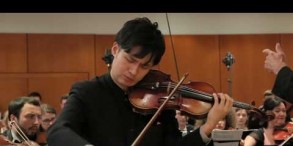University of Tokyo Unveiled Basic Principle for ultimate Quantum Computer
University of Tokyo's research team announced September 22 it had succeeded in developing the basic principle for a new type of a quantum computer out of a phenomenon known as teleportation that should eventually outperform today's modern computers.
NASA and Google have their own studies going based on a model developed by a Canadian venture based on a different principle. The University of Tokyo research team boasts theirs based on a principle of their own should lead to a new type of quantum computer that outperforms the Canadian model.
The team led by Professor Akira Furusawa of University of Tokyo focused on the so-called quantum teleportation that shows information teleported between two distant materials at the speed of light. This phenomenon takes place in a minute world of the light piece called quantum - what Einstein called "a spooky action at a distance".
Suppose you artificially place two light pieces a distance apart, each with a piece of information "2" and +2, respectively, and set them in the state of what Einstein called "spooky action", the pieces of information teleport to give the light pieces a resultant information "4".
The team says that information is transportable in addition, subtraction, multiplication, and division and that they have succeeded in simultaneously producing a million light pieces.
Right now, it takes a device 4m by 2m in size to effect calculation with a set of light pieces in the state of quantum entanglement, but Toyo University team has found a way of effecting the same calculation in a device half in size for almost unlimited times of calculation.
Prof. Furusawa comments:
"This is an entirely new principle that has never been presented and should lead to a quantum computer in a real sense of the term.
"We are here not to trail Europe and America but to create the ultimate quantum computer based on a Japanese system born in Japan." (Nathan Shiga)
Source: NHK










